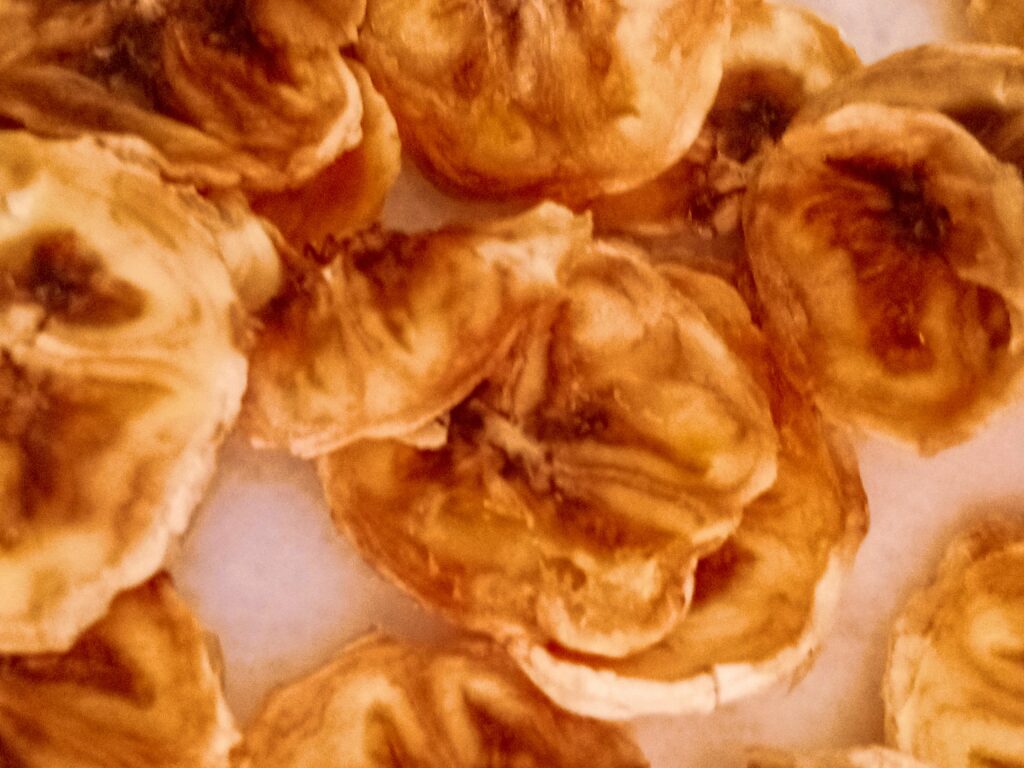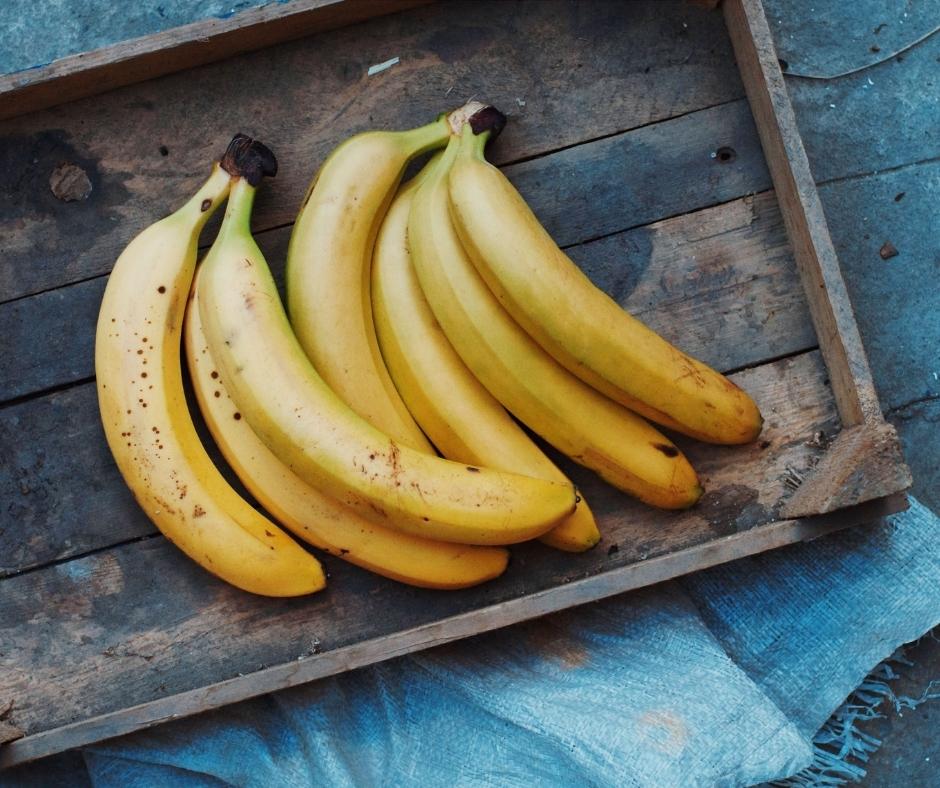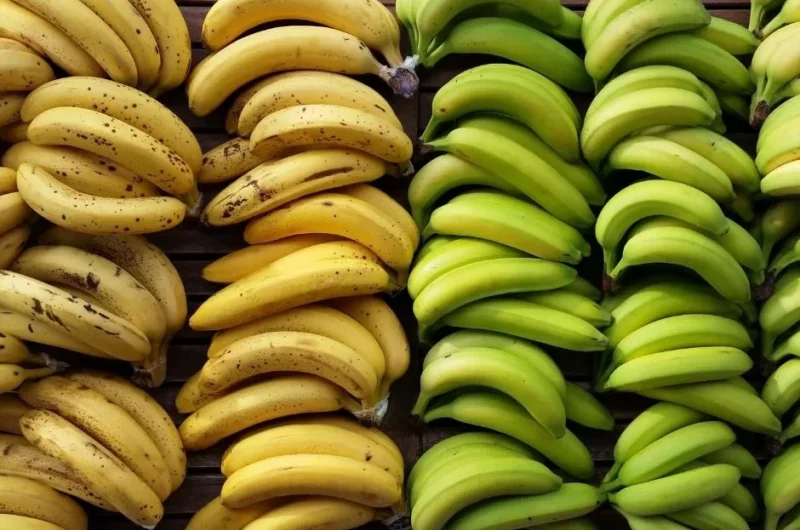Bananas are delicious and oh so nutritious. They are the favorite fruit of many people around the world.
Believe it or not, bananas have been grown for thousands of years and have been regarded as a healthy food for more than a century. However, before we get to the health benefits of bananas, let’s discuss what this delicious curved fruit is.
What Are Bananas?
In short, bananas are edible fruit belonging to the Musaceae family. Bananas, scientifically known as Musa, is a herbaceous flowering plant with a distinctive curved shape. Bananas have a firm but soft flesh that is housed in a thick, inedible peel. In addition to this, bananas are known for their creamy texture.
People usually associate bananas with yellow skin. However, like plantains, bananas are green when unripe, yellow when ripe, and brown or black when overripe.
Additionally, bananas are grown in clusters of 50-150. The grouped banana bunches are called hands, and there are 10-20 hands on each cluster.
Bananas usually belong two one of two species: Musa acuminata Colla and Musa balbisiana Colla. However, the most commercialized species of banana is the Musa Cavendish because it is unlikely to incur damage caused by environmental changes.
History Of Bananas
Scientists believe bananas were one of the first domesticated plants. Bananas are believed to have originated in Southeastern Asia. Arab conquerors carried bananas west in 327 B.C.
Eventually, bananas made their way to Africa, where they were brought to the New World and the Caribbean by explorers and missionaries. Today, bananas are cultivated in 135 countries across the globe and are the fifth most important agricultural food crop in world trade.

How To Use Bananas
Bananas can be used in several ways. Of course, you can eat them as they are, but with so many different ways to use them, you should at least find different ways to incorporate them into your diet.
You can add them to your cereal, oatmeal, or smoothies. Mashed ripe bananas can also be used as a substitute for butter or oil in baked goods.
You can also use mashed bananas to make carob chip banana bread, or cakes. In the same way, you can make carrot chips and plantain chips; you can also use bananas to make banana chips.
Health Benefits Of Bananas
Bananas contain many beneficial nutrients, including bioactive compounds, such as amines, carotenoids, flavonoids, phenolics, vitamins C and E. These compounds allow bananas to possess antioxidant potential, which is beneficial for human health. These are the six reasons you should eat more bananas
Treat Illnesses
Although it sounds a bit strange, in ancient times, bananas were used to treat illnesses. For example, bananas could be used to treat burns, diarrhea, inflammation, snakebites, and ulcers. Bananas were even used to treat excess menstruation.
Fiber
Like most fruits, bananas contain large amounts of water. However, they also contain high concentrations of fiber. In fact, a medium banana contains 10% of the daily recommended amount of fiber.
Furthermore, increasing your fiber intake is connected to a decreased risk of cardiovascular disease, type 2 diabetes, and some types of cancer. Fiber may play a role in decreasing blood pressure as well as inhibiting obesity by restricting weight gain. Fiber may also serve a therapeutic role in kidney and liver disease.

Phenolic Compounds
Bananas contain phenolic compounds. Specifically, the banana peel contains higher phenolic concentrations when compared to other types of fruit.
Phenolic compounds play a role in preventing cancer, cardiovascular disease, obesity, and diabetes. Phenolics are also considered functional ingredients because they can inhibit lipid oxidation, mold, and bacterial growth.
Potassium
Banana also contains high concentrations of potassium. A lack of potassium has been incriminated in several diseases, including osteoporosis, cardiovascular disease, and kidney stones. Potassium is also implicated with decreasing blood pressure, decreasing the risk of stroke and nephrolithiasis, and enhancing bone health.
Oligosaccharides And Polyphenols
Bananas also contain oligosaccharides and polyphenols, which may prevent muscular contractions, colon cancer, and diabetes. Both compounds may also regulate blood pressure and treat intestinal disorders.
In Summation
Bananas are one of the most popular fruits in the world. They contain several beneficial compounds, including fiber, phenolic compounds, potassium, oligosaccharides, and polyphenols. These compounds allow bananas to regulate and lower blood pressure and aid in preventing cardiovascular disease and certain types of cancers.






